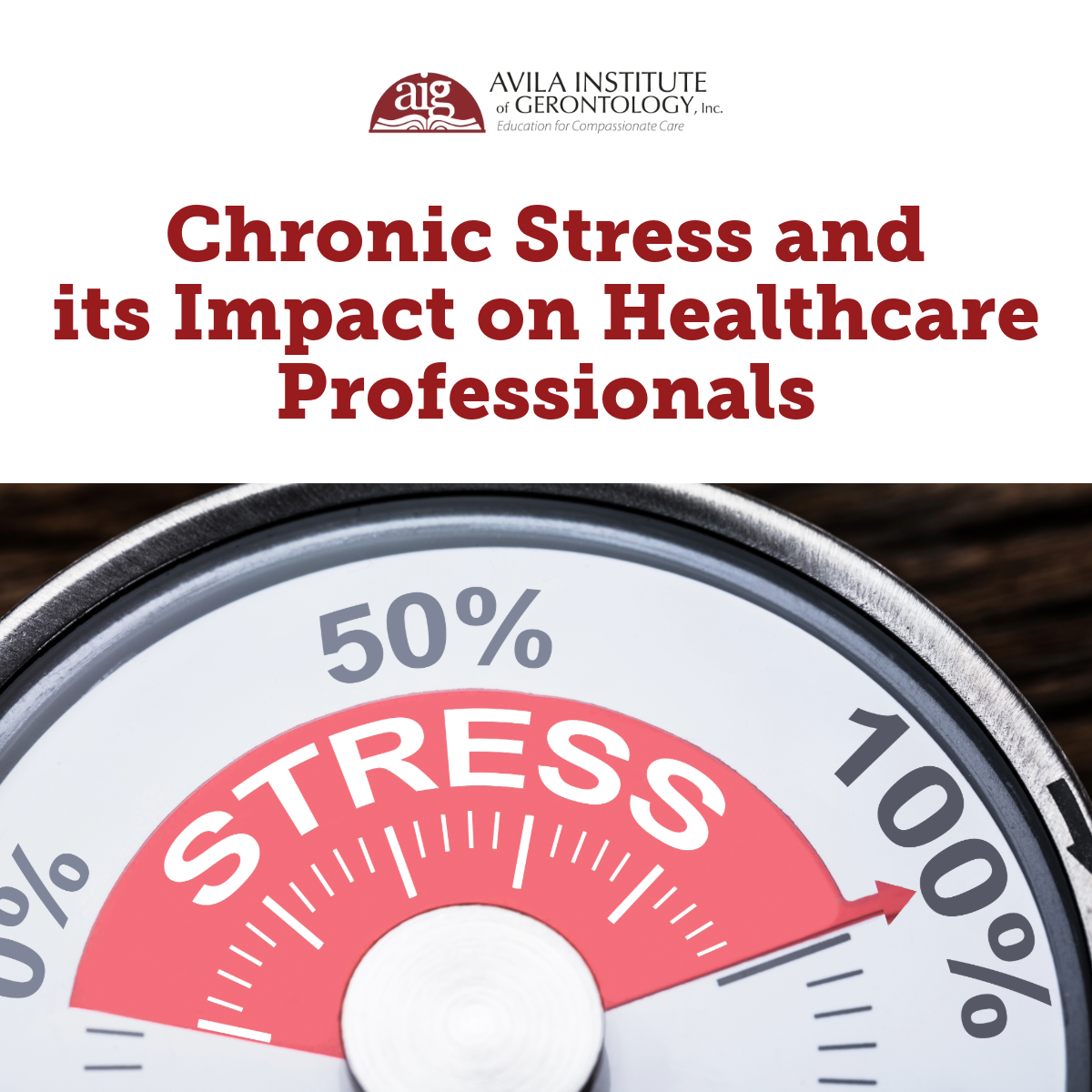
In long-term care, the focus is primarily on the well-being of others, it's all too easy to overlook the toll that chronic stress can take on those who devote their lives to caring for others. The demands of the profession, coupled with the emotional weight of witnessing suffering and navigating high-pressure situations, can lead to a silent strain that affects both the body and mind.
Understanding Chronic Stress
Chronic stress is not merely a fleeting feeling of pressure or tension; it's a persistent state of heightened arousal and tension that can have profound effects on both physical and mental health. When stress becomes chronic, the body's survival mechanisms kick into overdrive, flooding the bloodstream with a cocktail of chemicals designed to help cope with perceived threats. However, when this state persists over time, it wreaks havoc on the body's systems.
Physical and Mental Symptoms
The signs of chronic stress manifest in various ways, affecting both the mental and emotional well-being of caregivers and healthcare providers. Mentally, individuals may experience a range of symptoms, including mental slowness, confusion, constant worry, and difficulty concentrating. The overwhelming sense of pressure and the inability to think clearly can lead to a feeling of being constantly overwhelmed and unable to cope with daily tasks.
Emotionally, chronic stress can lead to irritability, frustration, and a sense of helplessness. The emotional toll of witnessing suffering and feeling overworked can leave caregivers feeling drained and depleted, with little energy left for personal relationships or activities they once enjoyed. Moreover, the persistent state of tension can strip away the sense of humor and joy, leaving individuals feeling emotionally numb and disconnected from others.
Behavioral Changes
Chronic stress also manifests in behavioral changes that can further exacerbate the strain on caregivers and healthcare providers. Individuals may withdraw from social interactions, spending less time with family and friends, and experiencing a sense of loneliness and isolation. Poor work relations and a decreased sex drive are also common symptoms, as the stress of the job spills over into every aspect of life.
Moreover, the constant state of tension can lead to a neglect of self-care activities, such as hobbies and relaxation techniques, further perpetuating the cycle of stress and burnout. As individuals struggle to find balance amidst the chaos of their professional lives, they may find themselves caught in a downward spiral of exhaustion and disillusionment.
The Impact on Physical Health
Beyond the mental and emotional toll, chronic stress also takes a significant toll on physical health. The prolonged exposure to stress hormones like cortisol can weaken the immune system, making individuals more susceptible to infections and illnesses. Moreover, the constant state of tension can contribute to a host of health issues, including cardiovascular problems, digestive disorders, and chronic pain.
Navigating the Challenges
Recognizing the signs of chronic stress is the first step towards addressing its impact on healthcare providers. It's essential for individuals in these roles to prioritize self-care and seek support when needed. Whether through therapy, peer support groups, or mindfulness practices, finding healthy ways to cope with stress is crucial for maintaining overall well-being.
Additionally, organizations must take proactive steps to address the systemic factors contributing to chronic stress in the healthcare industry. By implementing policies that promote work-life balance, provide adequate support and resources, and foster a culture of open communication and collaboration, we can create environments where caregivers and healthcare providers can thrive, rather than merely survive.
In conclusion, chronic stress is a silent but pervasive issue affecting caregivers and healthcare providers worldwide. By raising awareness of its signs and symptoms and taking proactive steps to address its impact, we can ensure that those who devote their lives to caring for others receive the support and recognition they deserve. After all, caring for others begins with caring for oneself.
Follow Us for Tips and Information
Be sure to follow us on Facebook and Instagram for the latest tips and information on dementia for families, long-term care healthcare professionals, and religious communities.
Do you need help taking care of your number one resource, your employees?
The Avila Institute of Gerontology offers invaluable assistance to long-term care facilities by providing comprehensive staff training programs designed to address the multifaceted challenges faced by healthcare professionals in this demanding field.
Avila Institute recognizes that by identifying and addressing these root causes, a healthier and more supportive work environment can be cultivated for both staff and residents. Through targeted training initiatives, Avila equips healthcare professionals with the skills and resources necessary to navigate the complexities of their roles with resilience and efficacy.
By focusing on promoting work-life balance, improving communication, and fostering a supportive workplace culture, Avila empowers staff to mitigate stress, enhance job satisfaction, and ultimately deliver higher quality care to residents. Investing in such training initiatives is essential for creating a sustainable and compassionate long-term care environment where the well-being of both staff and residents is prioritized.
Interested in working with us, use our contact form to reach out.
